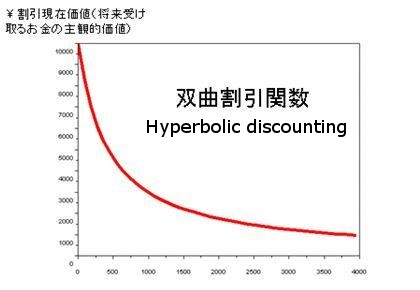Profile

- Research Subject
Neurobiological correlates of decision-making, e.g., intertemporal choice, decision under uncertainty, social preference
- Research Fields
- Behavioral neuroeconomics
- Faculty - Division / Research Group / Laboratory
- Division of Human Sciences / Research Group of Behavioral Science / Laboratory of Behavioral Science
- Graduate School - Division / Department / Laboratory
- Division of Human Sciences / Department of Behavioral Science / Laboratory of Behavioral Science
- School - Course / Laboratory
- Division of Humanities and Human Sciences / Course of Human Sciences / Laboratory of Behavioral Science
- Contact
Email: ttakahashi(at)lynx.let.hokudai.ac.jp
Replace “(at)” with “@” when sending email.Foreign exchange students who want to be research students (including Japanese residents) should apply for the designated period in accordance with the “Research Student Application Guidelines”. Even if you send an email directly to the staff, there is no reply.- Related Links
Lab.letters


Which would you prefer: one piece in 10 years, or two pieces in 10 years and a week?
Is there any contradiction in your choice?
Question 1: Which would you prefer: A, or B?
A. One piece of chocolate in 10 years
B. Two pieces of chocolate in 10 years and a week
Question 2: Which would you prefer: C, or D?
C. One piece of chocolate right away
D. Two pieces of chocolate in a week
In fact, these questions amount to the same thing, except for the condition “in 10 years.” Economists tend to assume that those who are patient enough to choose B in question 1 will naturally choose D in question 2, and vice versa. But that’s not always the case. Generally speaking, subjective discount rates for rewards decrease the farther one goes into the future (people can wait), but increase the closer they are to the present (people can’t wait). This is referred to as the “preference reversal over time” in behavioral and neuro-economics, which is described by the following “hyperbolic” time-discount function.

The fusion of behavioral economics and neuroscience:
Neuroeconomics as a science that liaises between these two
Behavioral economics is based on the concept that humans behave according to their desires, and neuroscience addresses the relationship between mind and brain. When these sciences confront problems beyond their frameworks, neuroeconomics, which is a fusion of the two, plays a role in solving those problems. This science focuses on using neurotransmitters, i.e., the micro level, to elucidate interpersonal interactions, i.e., the macro level of natural science. The ability to address issues regardless of their levels is a fresh lure of this science. Hokkaido University is blessed with a number of experts on economics, enabling the Faculty of Letters to perform joint research with the School of Science and the School of Medicine. Those who are interested in neuroeconomics are recommended to acquire a basic knowledge of biology, psychology and economics, in that order, which will help you to smoothly commence your technical studies.
Message
To examine the psychological and neural mechanisms behind decision making, I am engaged in research on a discipline called neuroeconomics combining findings in behavioral economics and neuroscience. I am employing approaches aimed at creating a fusion of psychology, biology and economics while applying a mathematical and physical model for behavioral analyses. I have primarily researched a paradox (anomaly) in time preference—which do you prefer, smaller immediate benefits or larger later benefits? More specifically, I have researched what type of neurohormones control time preference by accounting for the following phenomenon called hyperbolic discounting via a psychophysical model—people can patiently develop plans in the far future, but they tend to impulsively choose a smaller-sooner reward when actually implementing the intended plans. I will continue pursuing research on these themes based on a fusion of psychology, economics and biology while adopting the methods of neuroscience and mathematical physics.



